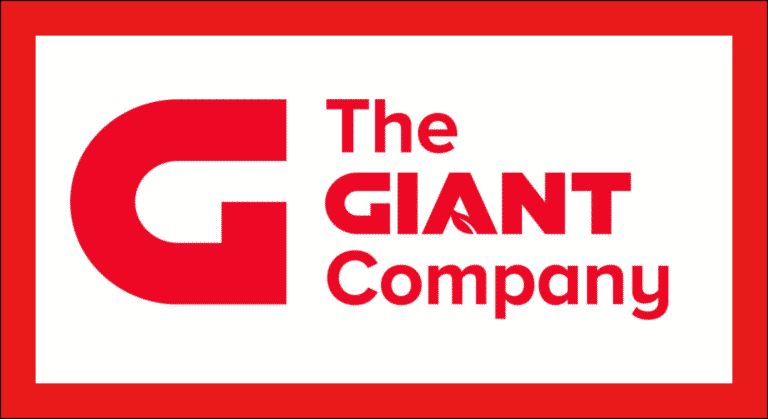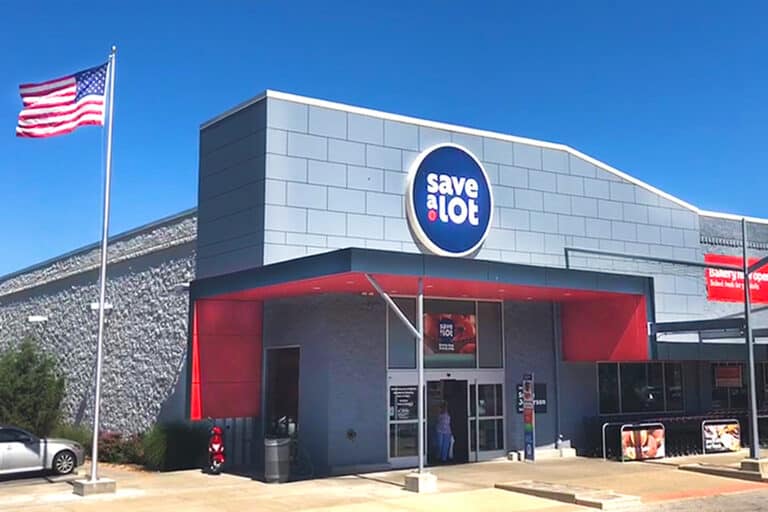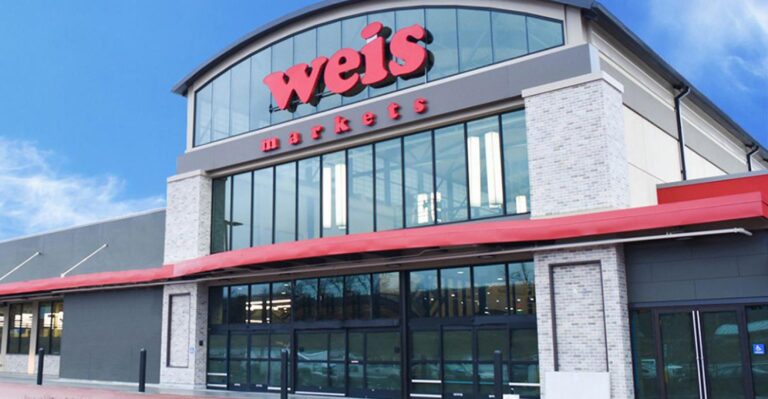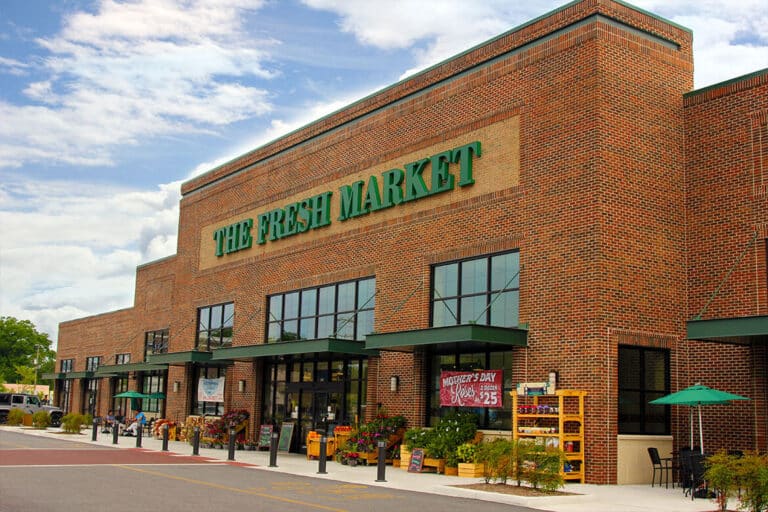After experiencing unprecedented e-commerce sales over the past 12 months, Weis Markets is poised to grow its digital platforms significantly in the near future. That was the summation of its first digital summit held virtually on March 18. More than 1,000 vendors tuned into the 75-minute event.
Opening the meeting was Weis’ chief operating officer Kurt Schertle who outlined the company’s achievements over the past year and provided an overview of what to expect this year. Among the highlights were: topping the $4 billion sales mark, growing overall market share and doubling its e-commerce revenue which now accounts for 2 percent of total company sales.
Schertle also focused in on more specific digital changes including the transition from a print-oriented advertising model to one where the Sunbury, PA-based merchant will rely more heavily on digital promotions.
“We are in this for the long haul,” said Schertle, who first joined Weis in 2009. “ I believe we are extremely nimble and are able to react to situations immediately.”
He also addressed the regional chain’s record $150 million cap-ex budget slated for 2021. New investments include five new stores – Gap, PA (a replacement supermarket which opens on April 22); Bethlehem, PA and Macungie Township, PA (replacement units which both open in mid-May); and a net new store in Warminster, PA (which is scheduled to open in Q4 of this year). Another net new supermarket in Martinsburg, VA opened in February.
Additional spending will center on adding nine new fuel stations, 10 other supermarkets that will be remodeled and a significant investment to expand the retailer’s online/digital efforts. Schertle also thanked “all of our store teams, especially pharmacy.” He also acknowledged the contributions of Weis’ marketing team which includes Ron Bonacci, VP-public relations, advertising and marketing; Maria Rizzo, director of advertising; Amanda Bauman, manager of digital marketing; Alyssa Marsh, manager of media marketing; Laura Reber, manager of loyalty marketing; and Jaime Hynoski, Weis’ event marketing specialist.
Following Schertle, newly promoted (to senior VP-merchandising and marketing/chief merchant) Bob Gleeson addressed the virtual audience.
The youthful-looking executive, who joined Weis in 2019 after a long stint with Shoppers Food (where Schertle also worked for many years), spoke in greater detail about Weis’ shift from print to digital advertising, noting that while print is still being utilized, more emphasis is being placed on a monthly basis stressing emerging trends. Print will also be used to provide a boost during the holiday season and to highlight special events.
However, more investment will be made towards Weis’ digital effort including weekly and seasonal promotions. And relatedly, Weis is also expanding its branding and logistics outside its stores for grocery pick-up.
“We want to work with you in a timely fashion to meet your online needs as well as in the areas of in-store, online, mobile offers and more personalized opportunities,” Gleeson proclaimed.
Brian Bosworth, Weis’ director of center store sales and merchandising, told the vendors that the challenges of the pandemic ignited an explosion in consumer demand for online and urged the vendors “to find more ways to engage with us.”
Ron Bonacci talked about the depth of Weis as a media organization with a multitude of messaging platforms including digital, print, television, radio, direct mail, sports marketing, in-store signage and local sponsorship.
He emphasized that a successful partnership starts with an idea where Weis and its vendors can then search for an event or opportunity to drive awareness. At that point, Weis will begin executing the joint strategy, measure and share the results.
And over the past year, partially fueled by increased sales from the pandemic, Weis showed healthy revenue gains in its three shopper groups – fringe shoppers, opportunity shoppers and core shoppers.
The veteran marketing executive, who joined Weis in 2017 from United Supermarkets, also provided an overview of the company’s loyalty marketing programs. Bonacci focused on the personalization and versatility of its offers. He noted the continuing importance of the retailer’s “Gold Card,” which includes Weis’ top shoppers and according to Bonacci offers great rewards opportunities.
“We’re very excited that we’re evolving our digital footprint and we need your help very greatly. Please bring us your ideas, your concepts and your thought process. You will gain valuable knowledge in return.”
The final speaker of the afternoon was Amanda Bauman, who manages Weis’ digital marketing effort. She updated the vendors on several aspects of Weis’ “exploding” e-commerce business which saw web traffic increase 300 percent in 2020. She noted that Weis currently has 184 “Weis 2Go” online locations. For grocery delivery, the merchant is utilizing Shipt at 175 Weis stores. Additionally, during the past 12 months Weis has integrated store planograms with online store data to create broader shopping opportunities with its customers. Vendors also can now purchase ads within the “Weis 2GO” platform (through third-party CitrusAd) creating an online advertising network. Weis has also upgraded and refreshed its “Aisle One” digital program which features “targeted, personalized relevant items display driven by (customer) purchase history.”
Bauman also reviewed Weis’ e-coupon effort, which over the past year has figured more prominently in the company’s overall digital advertising plan. She claimed that electronic coupons feature a 7.8 percent lifetime redemption rate and are now an integral part of the company’s “Fantastic Friday” event.
In reviewing Weis’ platform of digital marketing opportunities, Bauman focused on five key area where she believed vendors could benefit by participating: targeted emails, social media marketing, contests and sweepstakes, video and radio marketing and sports marketing.
Bob Gleeson then returned to the stage to thank the vendors for attending the virtual meeting and left with this message: “We are a forward-thinking company that’s nimble and quick to respond. We are a good partner and look forward to a good year going forward.”
During the virtual vendor meeting the company’s 2020 results were mentioned. More specifically, those financials were released about a week prior to the meeting, and the results were very healthy both for fiscal 2020 and for Weis’ fourth quarter.
During the 13-week period ended December 26, 2020, the regional chain with 197 stores posted a sales increase of 13.7 percent to $1.0 billion compared to the same period in 2019. Fourth quarter comparable store sales increased 14.1 percent.
Income from operations in Q4 totaled $26.9 million compared to $23.0 million in the same period in 2019. Weis’s fourth quarter net income increased 2.8 percent to $19.4 million compared to $18.9 million in 2019, while earnings per share totaled $0.73 compared to $0.70 per share for the same period in 2019.
On a full-year basis, Weis enjoyed an excellent fiscal 2020 with sales totaling more than $4.1 billion for the 52-week period, up 16.1 percent compared to the same period a year ago. Comparable store revenue increased 16.4 percent. Income from operations increased $78.5 million, or 92.8 percent over the same period in 2019 to $163.2 million.
For its full fiscal year, Weis’ net income increased 74.9 percent to $118.9 million compared to $68.0 million in 2019 while earnings per share for the same period increased $1.89 to $4.42 per share.
“The pandemic has been a supreme challenge for our communities and associates who continue to diligently serve our customers,” said Jonathan H. Weis, chairman and CEO. “As previously noted in our third quarter results release, in-home meal consumption soared in 2020 due to an increased number of customers and their families working or attending school remotely. We met this demand by ensuring a safe shopping environment for our customers and associates and operating stores that were consistently in-stock. Our results were made possible by increased replenishment schedules, adaptable procurement programs, enhanced ecommerce solutions, disciplined marketing and pricing programs, improved store, manufacturing and distribution efficiencies and consistent customer service.”
Weis also noted that its e-commerce sales increased 155 percent in 2020, adding that sales were also strong at the retailer’s fresh departments, notably meat and seafood, which benefited from increased at-home cooking.













